THE TIN DRUM (1979)
In 1924, Oskar Matzerath is born in the Free City of Danzig. At age three, he falls down a flight of stairs and stops growing. In 1939, World War II breaks out...
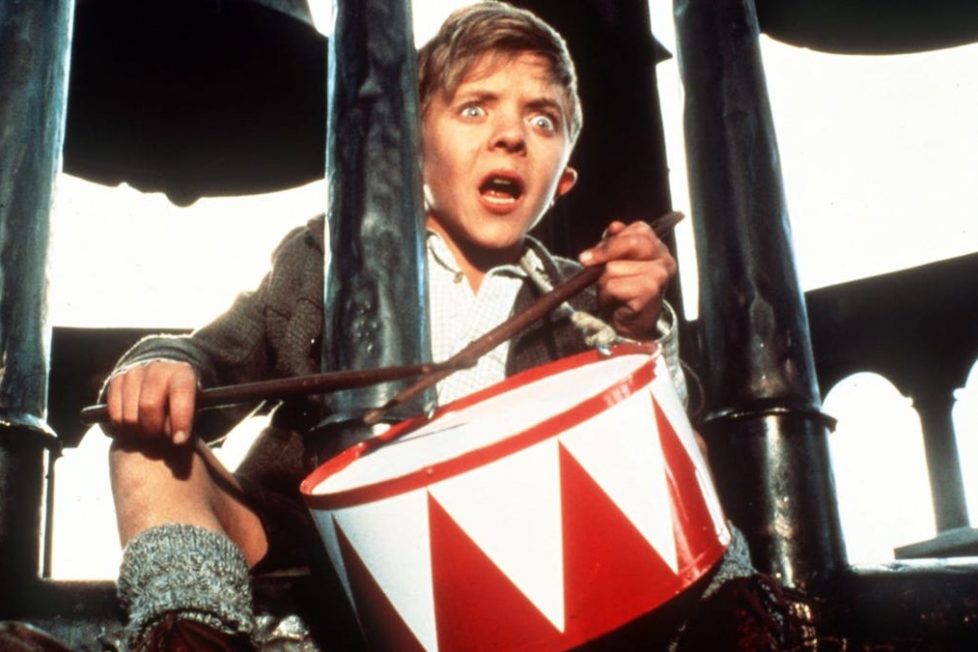
In 1924, Oskar Matzerath is born in the Free City of Danzig. At age three, he falls down a flight of stairs and stops growing. In 1939, World War II breaks out...


The Tin Drum began life as the first bildungsroman in German author Günter Grass’s Danziger Trilogie / Danzig Trilogy. Told by unreliable narrator and asylum inmate Oskar Matzerath, he recounts his decision to stop growing at the age of three, and his experiences living through World War II, whilst never physically developing into an adult. Regarded as one of the greatest works of post-war literature, particularly in Germany, it was a complex and epic novel which made screen adaptation no easy feat.
The project eventually came to Volker Schlöndorff, one of the prominent directors of the New German Cinema movement that took place during the 1960s-1970s, and included his contemporaries Wim Wenders, Werner Herzog, and Rainer Werner Fassbinder. Schlöndorff had established himself as one of the radical directors transforming German cinema and had proved he could adapt difficult literature with his debut film Young Törless (1966), based on Robert Musil’s 1906 novel The Confusions of Young Törless.
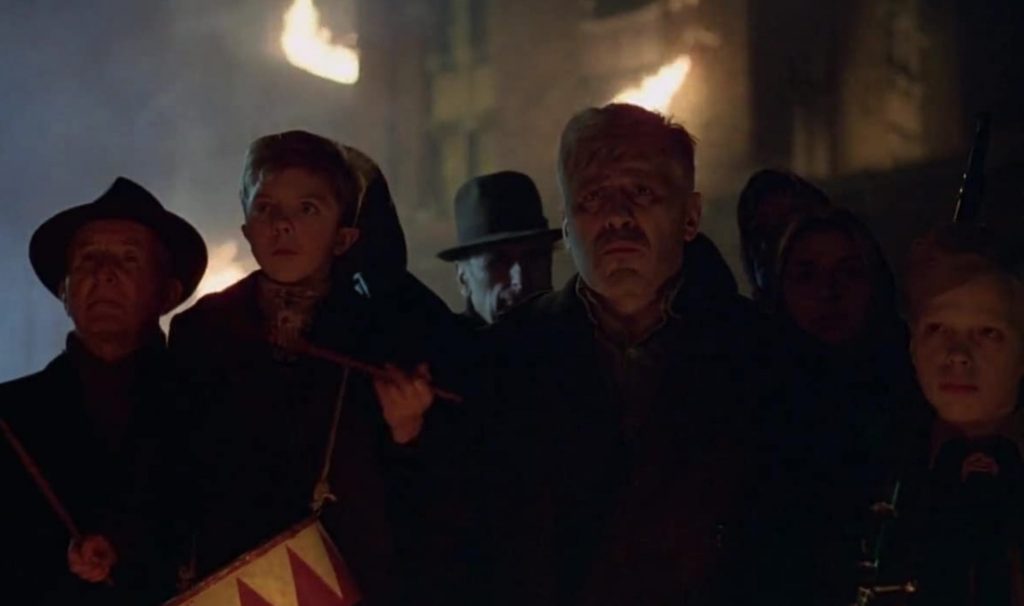
Schlöndorff’s visionary and sometimes Brechtian approach to the material proved successful, as the film went on to win the Palme d’Or at the Cannes Film Festival and won the ‘Best Foreign Language Film’ Academy Award. Now restored by Criterion, this essential piece of German cinema feels more timely than ever, telling a tale of arrested development set against the rise of fascism in the city-state of Danzig.
This faithful adaptation follows Oskar Matzerath (David Bennent), a young boy who chooses to cease growing after witnessing the ugliness of adulthood. Gifted a tin drum on his third birthday, Oskar uses the instrument to express dissatisfaction with the world around him and perfects his piercing shrieks to smash glasses at will. However, Oskar’s stubbornness to live eternally as a child becomes increasingly difficult as Nazism forces people in his neighbourhood to choose sides, especially within his own household between his mother Agnes Matzerath (Angela Winkler), her husband Albert Matzerath (Mario Adorf), and uncle Jan Bronski (Daniel Olbrychski).
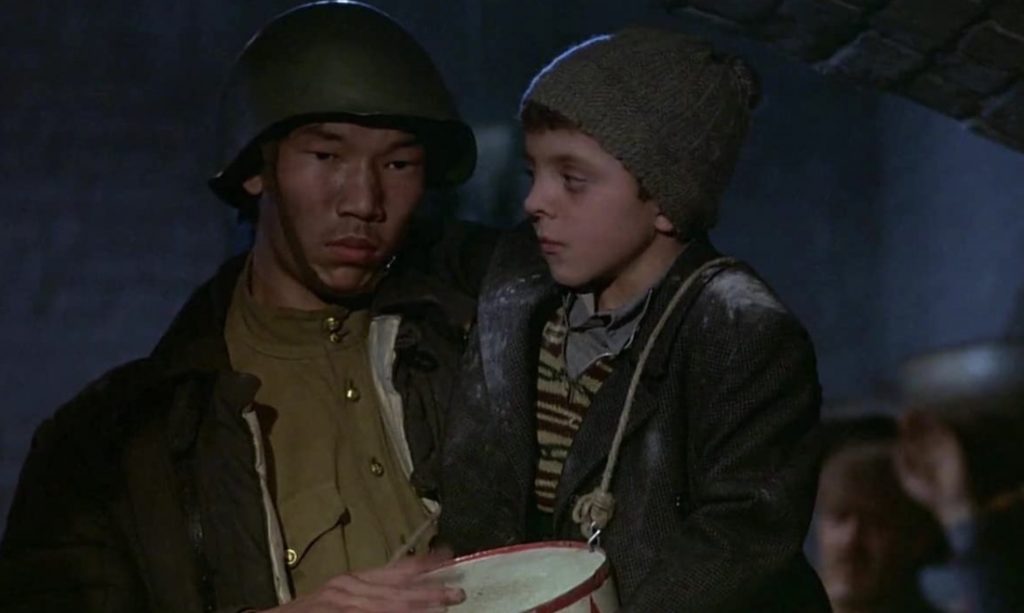
The setting of Danzig is fleshed out with peculiar characters, but the best supporting turns come from Daniel Olbrychski and Angela Winkle, as Oskar’s uncle and possible father Jan and his mother Agnes. They have a fiery chemistry and give a much needed sensitivity to the film through their illicit romance, especially in adding a softer side to Oskar. French crooner Charles Aznavour also puts in a surprising yet affectionate turn as Jewish toy-seller Markus, who kindly replaces Oskar’s tin drums over the years. Due to their statuses as Polish and Jewish men, both Jan and Markus become human casualties of Hitler and their arcs offer the film its most tender and heartbreaking moments.
The Tin Drum is a challenging work that offers no easy answers or solutions to the terror of fascism or the painful complexities of adulthood, only that the latter’s inevitable. However, it’s also incredibly funny in its bizarre portrayal of life in a divided Danzig and the satire of Nazism lands incredibly well, reminding audiences how ridiculous the Nazis often appeared. Every brownshirt looks like an overgrown boy scout, while the film’s standout scene shows Oskar’s incessant drumming throwing off an entire Nazi rally, turning the event into a waltz set to The Blue Danube.
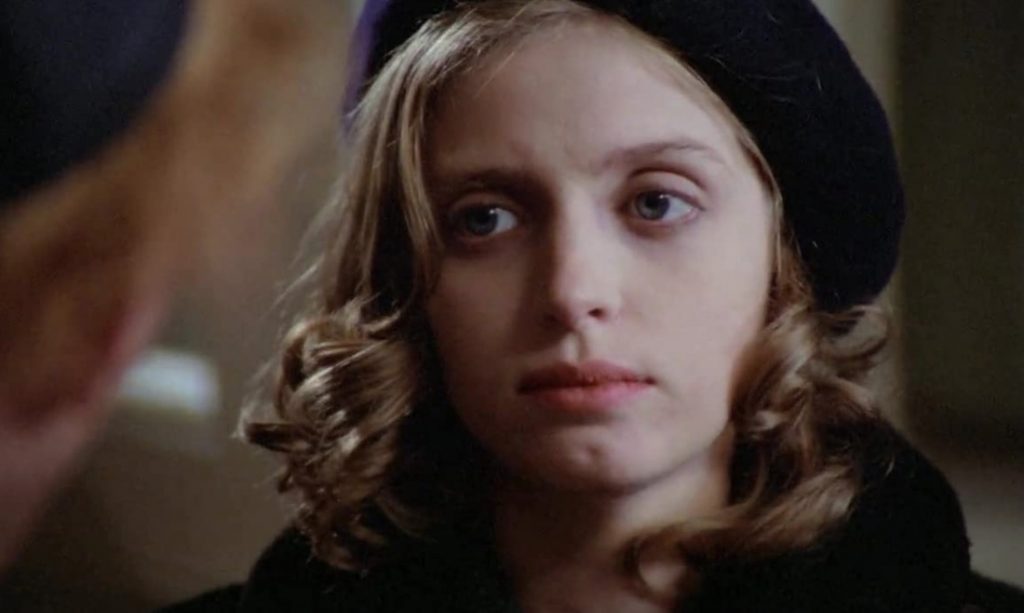
The waltz is just one example of the wonderful surreal imagery at play, strikingly composed by cinematographer Igor Luther. Other highlights include seeing the birth of Oskar from his point of view as he exits his mother’s womb, the smashing of specimen jars by Oskar’s screams in a doctor’s office and an imaginary tableau of Rasputin surrounded by naked women, awash in red light. Dalí would have been delighted by the erotic and sometimes grotesque visuals presented here.
The Tin Drum’s biggest strength, however, lies in David Bennent’s lead performance. If the role of Oskar was in the hands of a lesser child actor, his antics would have become unbearable far sooner. Bennent appears wise beyond his years as the child protagonist, watching events unfold with a calculating thousand yard stare and becoming a parent’s worst nightmare when things don’t go his way. It has to be one of the finest cinematic performances ever given by a child and Schlöndorff was blessed to have found him.
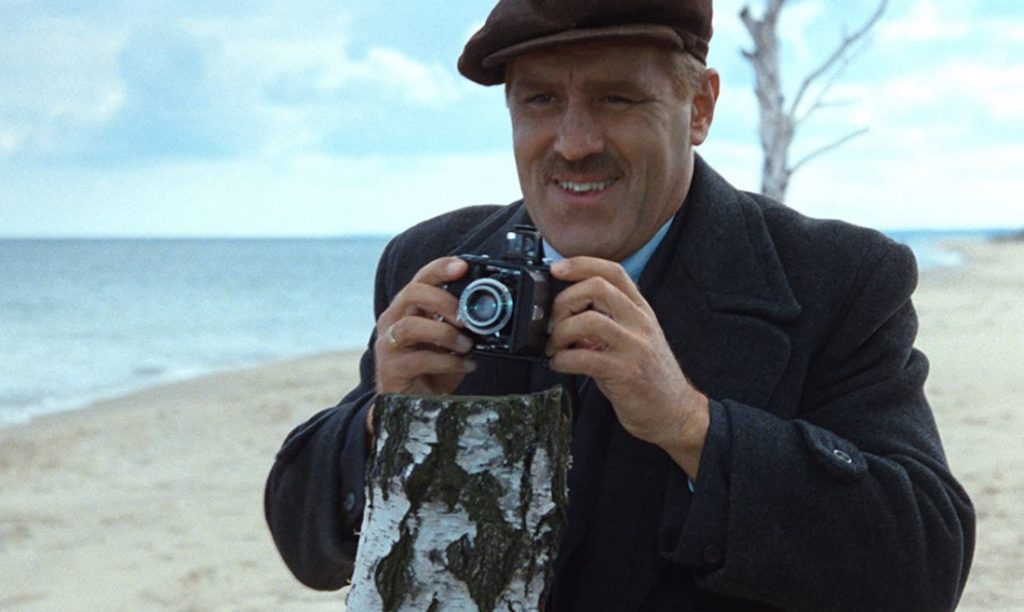
Nevertheless, some aspects of The Tin Drum now feel dated and also serve as a reminder of what directors could get away with in the 1970s. The controversial scenes in which Oskar seduces women as he mentally reaches his later adolescent years are deeply uncomfortable, particularly the sex scene with 16-year-old Maria (Katharina Thalbach). It’s understandable how these scenes caused the film to be banned in a number of countries and deemed child pornography by a judge in Oklahoma.
Additionally, The Tin Drum begins to lose steam in its second half. Events such as Oskar running off to join the circus (no, really) feel directionless and random, and his unpleasant behaviour becomes tiresome rather than engaging. Oskar’s refusal to grow up is increasingly selfish and irresponsible, and in times where dangerous ideologies have free reign, it can be incredibly frustrating watching the little tyke indulge in fantasies and stare passively as war rages on. If anything can be clearly interpreted from The Tin Drum, it’s that you can’t live in childlike idealism forever. Despite his stunted growth and outward appearance, Oskar’s mind and soul do inevitably grow up, a truth that even he acknowledges by the end of the film.
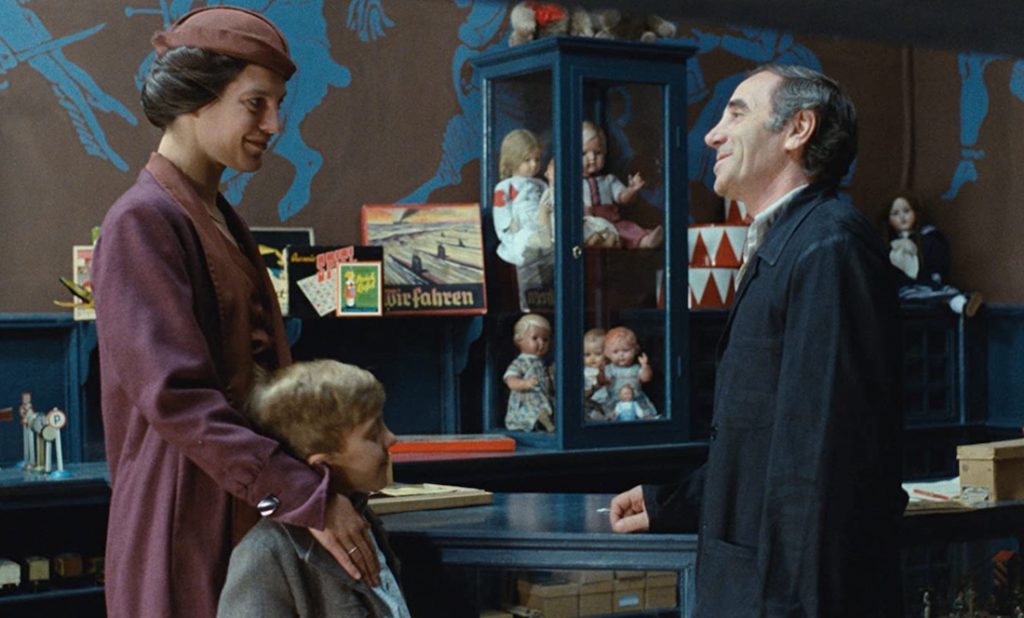
Some were shocked by Günter Grass’ later admission that he’d been involved with the Waffen-SS when he was a teenager, but this seems unsurprising given The Tin Drum’s depiction of life in Nazi Germany. It’s one of the most effective representations of Hannah Arendt’s phrase “the banality of evil”: Nazis appear commonplace, ordinary, and often unremarkable in the film… until they don’t. Events like the burning of the local synagogue and Kristallnacht seem to sneak up on the folks of Oskar’s hometown because their wilful ignorance and failure to see the nefarious meaning behind the Führer’s words. For marginalised people like the Polish Jan or Jewish Markus, however, they never had that option.
One of the strangest films ever made against the backdrop of Nazism, The Tin Drum is a stirring and bold vision from Volker Schlöndorff. Through a strange mix of pathos, macabre and satire, it ultimately speaks to the casual cruelty and vulgarity of adulthood. Our anti-hero Oskar never really takes a side, desperate to remain inculpable the way only children can, yet he’s not resolved of the blame laid at his feet. The Tin Drum is an unpredictable and extraordinarily mystifying experience that will be alienating for some and heavenly for others.
WEST GERMANY • FRANCE • POLAND • YUGOSLAVIA | 142 MINUTES • 162 MINUTES (DIRECTOR’S CUT) • 132 MINUTES (1980 CUT) | 2.20:1 | BLACK & WHITE • COLOUR | GERMAN • ITALIAN • HEBREW • POLISH • RUSSIAN • LATIN


director: Volker Schlöndorff.
writers: Volker Schlöndorff, Jean-Claude Carrière & Franz Seitz (based on the novel by Günter Grass).
starring: David Bennent, Mario Adorf, Angela Winkler, Daniel Olbrychski, Katharina Thalbach & Charles Aznavour.
